Clancy Tucker's Blog, page 216
July 16, 2016
17 July 2016 - GREAT PARENTAL QUOTES

GREAT PARENTAL QUOTES
G'day folks,
Many of you, if not all of you, will identify with the statements in this post. These are common statements made by parents.
1.My mother taught me TO APPRECIATE A JOB WELL DONE.
"If you're going to kill each other, do it outside. I just finished cleaning."
2.My mother taught me RELIGION.
"You better pray that will come out of the carpet."
3.My father taught me about TIME TRAVEL.
"If you don't straighten up, I'm going to knock you into the middle of next week!"
4.My father taught me LOGIC.
"Because I said so, that's why."
5.My mother taught me MORE LOGIC .
"If you fall out of that swing and break your neck, you're not going to the store with me."
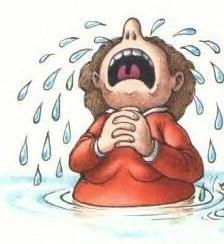
6.My mother taught me FORESIGHT.
"Make sure you wear clean underwear, in case you're in an accident."
7.My father taught me IRONY.
"Keep crying, and I'll give you something to cry about."
8.My mother taught me about the science of OSMOSIS.
"Shut your mouth and eat your supper."
9.My mother taught me about CONTORTIONISM.
"Just you look at that dirt on the back of your neck!"
10.My mother taught me about STAMINA.
"You'll sit there until all that spinach is gone."
11.My mother taught me about WEATHER.
"This room of yours looks as if a tornado went through it."
12.My mother taught me about HYPOCRISY.
"If I told you once, I've told you a million times, don't exaggerate!"

13.My father taught me the CIRCLE OF LIFE.
"I brought you into this world, and I can take you out..."
14.My mother taught me about BEHAVIOR MODIFICATION .
"Stop acting like your father!"
15.My mother taught me about ENVY.
"There are millions of less fortunate children in this world who don't have wonderful parents like you do."
16.My mother taught me about ANTICIPATION.
"Just wait until we get home."
17.My mother taught me about RECEIVING.
"You are going to get it from your father when you get home!"
18 .My mother taught me MEDICAL SCIENCE.
"If you don't stop crossing your eyes, they are going to get stuck that way."
19.My mother taught me ESP.
"Put your sweater on; don't you think I know when you are cold?"
20.My father taught me HUMOUR.
"When that lawn mower cuts off your toes, don't come running to me."

21.My mother taught me HOW TO BECOME AN ADULT.
"If you don't eat your vegetables, you'll never grow up."
22.My mother taught me GENETICS.
"You're just like your father."
23.My mother taught me about my ROOTS.
"Shut that door behind you. Do you think you were born in a barn?"
24.My mother taught me WISDOM.
"When you get to be my age, you'll understand.
25.My father taught me about JUSTICE .
"One day you'll have kids, and I hope they turn out just like you!"
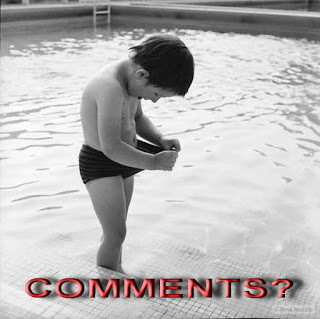
Clancy's comment: Yep, I've heard the lot, and I'm still alive.
I'm ...
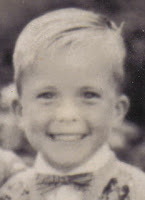

Published on July 16, 2016 16:15
July 15, 2016
16 July 2016 - NICK CHIARKAS - Guest Author
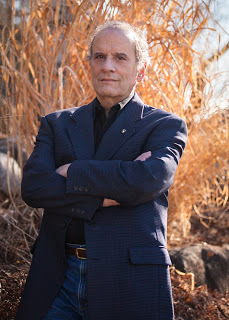
NICK CHIARKAS- Guest Author -G'day folks,
Today, I present an interview with a man who has had an interesting life, then used those experiences to write books. He is an award-winning author.
Welcome, Nick ...
1. TELL US A LITTLE ABOUT YOURSELF AND YOUR WRITING JOURNEY.
My name is Nick Chiarkas, I live with my family in Middleton, Wisconsin USA, my novel, Weepers, is a Mystery/Suspense set in New York City, during 1957.
I grew up in the Al Smith housing projects in the Two Bridges neighborhood on Manhattan’s Lower East Side. When I was in the fourth grade my mother was told by the principal of PS-1 that, “Nick was unlikely to ever complete high school, so you must steer him toward a simple and secure vocation.” Instead, I became a writer, with a few stops along the way: A New York City Police Officer; the Deputy Chief Counsel for the President’s Commission on Organized Crime; and the Director of the Wisconsin State Public Defender Agency. On the way I picked up a Doctorate from Columbia University; a Law Degree from Temple University; and was a Pickett Fellow at Harvard. How many mothers are told their child is hopeless? How many kids with potential simply surrender to desperation? That’s why I wrote “Weepers”—for them.
2. WHEN AND HOW DID YOU BECOME A WRITER?
As a kid and growing up, there wasn’t anyone that I could talk to about my fears, desires, disappointments…anything really. So I found comfort in writing poetry, expressing my feelings in an essay or short story. I also found an escape in reading books, novels, poetry, anything.
3. WHAT TYPE OF PREPARATION DO YOU DO FOR A MANUSCRIPT? DO YOU PLAN EVERYTHING FIRST OR JUST SHOOT FROM THE HIP?
A lot of preparation. First I write the story, just scribble it down like telling a story to a friend there are lots of parts missing but I get the story down on paper. Then I create a very rough outline mostly about where the story goes from the opening to the end. Again this is not detailed at all. Then comes a ton of research. For example, Weepers takes place in New York City in 1957. I research the weather; what was on TV; popular boys and girl’s names based on when they were born and their ethnicity; Street names; buildings, movie houses, plays, local, national and world news, etc. I research floor plans for apartment buildings that may no longer exist. The culture; language; popular slang; music; clothing; everything. I do a backstory for all major and secondary characters. I talk to people that were the age I am researching during 1957 – what were they thinking, doing, saying; what did they want, hope for, fear. Now, I am ready to write that first draft, and during the writing, inevitably, there is more to research.
4. WHAT DO YOU ENJOY MOST ABOUT BEING A WRITER?
The writing itself. And mostly the rewriting. The research, outline, first draft all of that is, in the words of Shannon Hale, “Simply shovelling sand into a box so that later I can build castles. The rewriting is my castle building time.
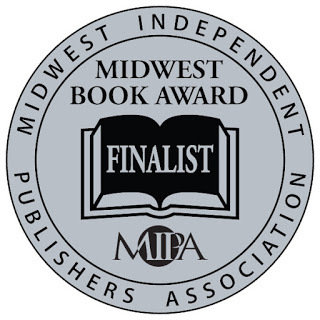
5. WHAT IS THE HARDEST THING ABOUT BEING A WRITER?
For me it is the voices in my head telling me that I am not good enough to successfully do this. Overcoming those insecurity demons of my past that insist on haunting my present.
6. WHAT WERE YOU IN A PAST LIFE, BEFORE YOU BECAME A WRITER?
In many ways, Weepers is auto-fiction, based on some real but fictionalized events. As a kid, I was a gang member and an Eagle Scout. But my past jobs from most recent to forever ago - I was the Director of the Wisconsin’s State Public Defender Agency for twenty-two years. In addition, I was an adjunct professor of law at the University of Wisconsin Law School and was a visiting lecturer in law at Justus-Liebig-Universität, Gießen, Germany. Previously I served as the Deputy Chief Counsel and Research Director to the President’s Commission on Organized Crime; Deputy Chief Counsel to the United States Senate Permanent Subcommittee on Investigations; Professor of Law; Professor of Criminology; a New York City Police Officer, and a U.S. Army paratrooper (101stAirborne Division).
7. WHAT IS YOUR GREATEST WRITING ACHIEVEMENT?
I’ve, written law books; books dealing with Criminal Organizations and Enterprises: several articles, two of which have been translated and published in Japan; poetry; But my greatest writing achievement, for so many reasons, is my novel Weepers. That is why I am so thrilled, that it is a finalist, for best Mystery/Thriller by the Midwest Independent Publishing Association. I have pasted their press release here:
Former NYPD Cop & Author Named a Finalist
in the 26th Annual Midwest Book AwardsMadison: The 26th Annual Midwest Book Awards has recognized “Weepers” by Nick Chiarkas as a finalist in the category of Mystery/Thriller. Winners will be announced at the Midwest Book Awards Gala to be held on May 13, 2016, from 6:30 to 8:30 p.m. at the Olson Campus Center at Luther Seminary in St. Paul, Minnesota.The competition, sponsored by the Midwest Independent Publishing Association, is judged by experts from all aspects of the book world, including publishers, writers, editors, librarians, teachers and book designers. They select award winners and finalists based on overall excellence. “Weepers” is a Mystery/Thriller set in New York City, during 1957. The murder of an undercover cop in a New York City Housing Project in 1957 has unexpected ties to the unsolved disappearance of a young father walking home in those same Projects with his son, Angelo, on Christmas Eve 1951. The only witness to the cop killing is Angelo, now 13, as he was on his way to commit arson at 2:00am. The killers saw him. These events forge a union between a priest, a Mafia boss, a police detective, and Angelo, a gang member. In Weepers, we see that, if you drop a rock into the East River, the ripples will go all the way to Italy. In the end, Weepers shows us that the courage of the underdog—despite fear and moral ambiguity—will conquer intimidation.“It is thrilling to see so many talented authors and publishers of high quality books in the Midwest,” said Midwest Book Awards Chair Sherry Roberts. “I look forward to the Gala, where we will be recognizing the achievements of all the finalists and winners as well as celebrating the strength and vitality of independent publishing in the Midwest.” About MIPA Midwest Independent Publishing Association serves the Midwest publishing community to promote excellence in publishing in the Midwest. Through educational programming and other cooperative efforts, MIPA helps members learn more about publishing and book production, promotion and marketing. MIPA also provides networking opportunities for publishers, both new and experienced, to learn from each other.
MIPA serves a 12-state region: Illinois, Indiana, Iowa, Kansas, Michigan, Minnesota, Missouri, Nebraska, North Dakota, Ohio, South Dakota and Wisconsin.
For more information, please visit: www.mipa.org. For more information about Weepers go to www.nickchiarkas.com
8. WHAT ARE YOU WORKING ON AT THE MOMENT?
Although “Weepers” stands on its own, it is also the start of a series. I am presently writing “Nunzio’s Way”, which will be followed by “Black Tiger Tea” and then “Blue Bounty”. I know the story that far, but don’t know, at this point, if there will be more to tell beyond that fourth book or if I will go in a different direction.
9. WHAT INSPIRES YOU?
Inspire me in a good way: Good people; smart people; the courage of the under-dog; my wife Judy Olingy; my five children; good friends; music; other authors and books; stories; poems; and fragile people.
Inspire me in a bad way: bullies, mean people; most politicians; greed; deceit; and fear mongering.
10. WHAT GENRE DO YOU WRITE?
My genre of choice is Mystery/Thriller/Suspense.
11. DO YOU HAVE ANY TIPS FOR NEW WRITERS?
My advice to aspiring authors is that you need perseverance, discipline, and luck – luck happens when preparation meets opportunity. I have learned this the hard way, from making many mistakes and absorbing lots of rejections, before getting it right and receiving a traditional publishing contract with a modest but lovely advance. I promise you, if I can do it so can you. Please don’t give up. It is waiting for you.

12. DO YOU SUFFER FROM WRITER’S BLOCK?
No. I stop writing for the day while I still have a wee bit more to say. I make a small note as a reminder. The next day I start with what I know I’m going to say, and just power through any potential blockage. My advice on this is to write anything, backstory, a recent scene through a different POV, anything, write and power through.
13. DO YOU HAVE A PREFERRED WRITING SCHEDULE?
My best time is morning through late afternoon. But I’ve been known to write all night if I’m in a flow. I try to follow Anne Lamott’s advice in Bird by Bird and write at least one-inch of type each day.
14. DO YOU HAVE A FAVOURITE WRITING PLACE?
I am fortunate enough to have a Zen-like lake house in North-Central Wisconsin. It is a great place to escape into your own head.
15. WHAT IS YOUR GREATEST JOY IN WRITING?
While I am writing - When I am in the flow. Or when one of my characters surprises me.
After publication – when someone tells me they enjoyed the story.
16. WHO IS YOUR FAVOURITE AUTHOR AND WHY?
My favorite author is J. D. Salinger. I do like all of his stories and his writing style, but that’s not why he is my favorite author. When I was in the Army, I wound up in an Army hospital and wrote a short letter to J. D. Salinger doubting that it would ever get to him. He wrote back to me. I have that letter (and envelope it came in) in a frame in my home. His very kind letter is one of the things that inspired me to write. He will always be my favorite author.
17. WHAT’S THE GREATEST COMPLIMENT YOU EVER RECEIVED FROM A READER?
My preference, if invited, is to always attend a book clubs’ discussion of my novel “Weepers.” However, due to an illness in my family, I was not able to attend a recent discussion of “Weepers” by a lovely book club in Peoria, Illinois. This book club is made up of women and men in their mid-nineties. Shirley, the woman that emailed me is 93-years old. That’s right she emailed me the summary of the discussion. I have pasted it below, with her permission, exactly as she sent it.
Shirley Mar 28 to me
Well, our Book Club meeting just ended and I bet you are just sitting there by your computer waiting to hear from me. Kidding, but I expect you will be interested to know what they thought.
First of all, everyone, without exception found it fascinating, holding their interest and suspense of how it would turn out. That's good and made me happy. Marg, the only one who had lived in N.Y. post World War 2 and in Brooklyn had a clue as to that sort of life and even then mostly knowing that there were areas she and her friends should steer clear of. She also said there were times she had to put the book down for fear of nightmares. WE also were wondering how much goes on in our city as we have murders quite regularly that we know about and wonder what's behind that we don't hear about. And not just in one area either.
My cousin, Carl is worried about Nunzio, having a negative opinion of his motives. Much as I was horrified about some of Nunzio's tactics, felt he was on the right side of justice. I had to assure my cousin I liked my own gentle uncles (his father being one) better. But again none of my uncle's faced that kind of society. Mostly grown up farm boys.
A couple of comments: Laughing at Emma screaming at Bookman's explosion and then settling down to watch the action with her cigarette and wine - one of the few humorous scenes; Uncle Johnny teaching a lesson we all could learn by not letting what people think of you when involved in something important; The characters of Father Joe admitting it was not always easy to draw the line between right and wrong. In less dramatic times I think we all have faced that; Father Casimiro facing the "BEAST - most of us have not faced that kind of beast and wonder how we'd do; The irony of Hector, and brothers treasuring holy medals while involved in absolutely murderous activities and even then their loyalty to their family - one mentioning Al Smith trying to help the poor with apparent admiration; While it wasn't exactly humorous, I was still delighted with the gentle kitten with the white collar and red bow, the bishop's run away car, and the push into the subway tracks, subtle but relatively harmless warnings. Too many other points to list--- While I try to be a truly Christian Catholic and am a daily church goer, I sure agreed with the remark of not wanting to trust a nickel to most politicians and at least a number of bishops.
Bottom line was that it created a lively discussion with a lot of appreciation for your writing skills and how they would have enjoyed meeting you and look forward to a sequel. We had 2 new residents join us today and they both wanted to borrow one of the books to read after the discussion.
Thank you again, Shirley
I asked if I may come down for a visit, even though they are on another book. Shirley said, “Yes,” and that they have some suggestions for the sequel – I love it. Next stop, Peoria.

18. WHAT WAS THE WORST COMMENT FROM A READER?
To date I have 54 reviews on Amazon. One of those reviewers gave me 2 stars, here it is: 2.0 out of 5 stars Two StarsByEd Pennaon October 8, 2015Format: Kindle EditionTo unbelievable, main activator needed to be at least 16.
19. WRITERS ARE SOMETIMES INFLUENCED BY THINGS THAT HAPPEN IN THEIR OWN LIVES. ARE YOU?
Yes. Weepers is a Mystery/Thriller but in many ways it is also Auto-Fiction. I chose fiction because I believe I can tell the truth of the story in a way that hopefully the reader feels it; feels like they are in the story. I can do that best if I am not encumbered by facts. Make no mistake, Weepers is fiction, but I exaggerated and fictionalized some real events and emotions to try to create those same emotions in my reader. So, again, yes, while it is fiction it is influenced by real events.
20. OTHER THAN WRITING, WHAT ELSE DO YOU LOVE?
I love to draw and paint (oils mostly); woodworking; reading; and just spending time with my family.
21. DID YOU HAVE YOUR BOOK / BOOKS PROFESSIONALLY EDITED BEFORE PUBLICATION?
Yes. That is a must. In fact, I insist on a process that requires several edits. 1. I edit descriptions, darlings, repeats, filler words, filter words, and I do a surgical edit to reduce the word count (in “Weepers” I reduced the word count from 148,000 to 95,000 words);2. I edit for lazy - “why did I stop the scene with that line? Why did I start the new scene with that line? Stuff like that.3. And after that, I get a Professional edit, Story, Plot, Developmental (premise, plot structure, pacing, characters, dialogue and marketability), and of course a professional line edit.
22. DESCRIBE YOUR PERFECT DAY.
Doing a bit of writing, a bit of painting, but mostly kicking back with my family.
23. IF YOU WERE STUCK ON A DESERT ISLAND WITH ONE PERSON, WHO WOULD IT BE? WHY?
I know the clever answer is a great story teller; or doctor; or ship builder, but if it could only be one person it would be my wife. Judy is the smartest person I know, great fun, and simply amazing.
24. WHAT WOULD YOU SAY IF YOU HAD THE CHANCE TO SPEAK TO WORLD LEADERS?
I would search for the right words to dedicate the world to feeding, clothing, and educated all of the worlds people.

25. WHAT ARE YOUR PLANS FOR THE FUTURE?
I have three books to write (Nunzio’s Way, Black Tiger Tea, and Blue Bounty); travel, and to find time to enjoy the sweetness of doing nothing.
26. WHAT ARE YOUR VIEWS ON BOOK TRAILERS? DO THEY SELL BOOKS?
I love book trailers, but do not have any statistics regarding book sales due to a trailer. The book trail for Weepers can be viewed at: https://www.youtube.com/watch?v=w6RTOr9gB3E
27. DO YOU SEE YOURSELF IN ANY OF YOUR CHARACTERS?
Yes, primarily in Angelo, but, I find myself, or pieces of myself, in other characters as well.
28. DOES THE PUBLISHING INDUSTRY FRUSTRATE YOU?
Sure. But I don’t know enough about it to be an honest critic. My publisher, HenschelHaus (www.henschelhausbooks.com), is wonderful and I feel fortunate to have been offered a contract by them. So, in the end, I accept the publishing industry as “it is what it is” and I don’t see it changing any time soon.
29. DID YOU EVER THINK OF QUITTING?
No. Not ever. And, that’s my advice to writers. Be patient, persistent and disciplined. Create the best possible manuscript you can – well researched and edited. And then, know that your manuscript is not diminished by someone else’s inability to see its worth. And then as rejections float in, think about what might improve your chances, or your query, or your manuscript, but never think of quitting.
30. WHAT WAS YOUR FAVOURITE MANUSCRIPT TO WRITE? WHY?
“Weepers”, without a doubt.
31. HOW WOULD YOU DEFINE ‘SUCCESS’ AS A WRITER?
Great question. Every writer should define success for themselves. For me, it was getting a traditional contract with an advance. After I was published, it was when the first person that I did not know purchased my novel. However, looking back in time, to when I sent out my manuscript to an agent for the first time, and had it rejected and returned, my son Josh, who was just starting High School asked me what I was going to do. I said, I was going to rewrite it and try again. He recently told me how much that meant to him. So maybe that was my greatest success. Not giving up.
32. WHAT SHOULD READERS WALK AWAY FROM YOUR BOOKS KNOWING? HOW SHOULD THEY FEEL?
I want to entertain my readers, but I also want to show them a kind of life – growing up – in a world they with which they may have little or no contact. Some insights into those of us who grew-up poor in the projects. The different values and norms the blurring of the lines between good and evil. In the end, “Weepers” shows us that the courage of the underdog—despite fear and moral ambiguity—will conquer intimidation.

33. WOULD YOU LIKE TO HAVE YOUR BOOKS MADE INTO MOVIES? EVER WRITTEN A SCREENPLAY?
I would love that. To be able to sit back and watch my novel come to life. That would be amazing. But, I have never written a screenplay.
34. HOW MUCH THOUGHT GOES INTO DESIGNING A BOOK COVER?
That was fun and a lot of thought. My publisher gave me a great deal of freedom in suggesting and helping to design the cover with the artists. And details are important, for example, in a later draft the shadow figures of gang members were wearing hoodies. The problem was that gangs in New York City in 1957 were not wearing hoodies, so the artists redesigned the jackets on the shadow figures.
35. WHAT’S YOUR ULTIMATE DREAM?
Wow, if you mean for me personally, this might sound boring, but I am living it. I don’t know how I could ask for more. Of course, if you are asking about others (family, friends, the world) my dream would be that every child goes to bed each night well housed, well clothed, well-nourished and their faith in their own future well placed.
36. WRITING IS ONE THING. WHAT ABOUT MARKETING YOU, YOUR BOOKS AND YOUR BRAND? ANY THOUGHTS?
This is so important and I am so bad at it. Everyone writing must have a website and at least a basic understanding of social media.
37. ARE YOUR BOOKS SELF-PUBLISHED?
No. Weepers, and my other (non-fiction) books have all been published with traditional contracts and through traditional publishers.
38. DESCRIBE YOURSELF IN FIVE WORDS.
I can laugh at myself.
39. WHAT PISSES YOU OFF MOST?
I dislike bullies; I dislike mean people; and the more I listen to politicians, news broadcasters and talking heads the more I like dogs.
40. WHAT IS THE TITLE OF THE LAST BOOK YOU READ? GOOD ONE?
“The Cuckoo’s Calling” by Robert Galbraith (J. K. Rowling) Loved it.
41. WHAT WOULD BE THE VERY LAST SENTENCE YOU’D WRITE?
“I surrendered.”
42. WHAT WOULD MAKE YOU HAPPIER THAN YOU ARE NOW? CARE TO SHARE?
Again, it would truly be knowing that our world leaders came together to ensure that every child goes to bed each night well housed, well clothed, well-nourished and their faith in their own future well placed.

43. WHAT ARE FIVE FUN FACTS ABOUT YOU THAT MOST PEOPLE MIGHT NOT KNOW?
1. Weepers draws from my memory and my heart. I grew up in the Al Smith projects where Weepers takes place.2. I raised my two oldest children mostly as a single dad – just the three of us. They taught me a lot.3. I was one of a handful of NYPD cops sent to Woodstock in 1969 to provide security – it was incredible.4. While in an Army hospital I received a very kind letter from J.D. Salinger.5. I was in the movie The Anderson Tapes (Starring: Sean Connery, Dyan Cannon, and Christopher Walken).

Website: www.nickchiarkas.com
Also visit Nick's: Amazon Author Page and Goodreads Author Page
Facebook: www.facebook.com/NicholasChiarkasAuthor/?ref=aymt_homepage_panel
You Tube: www.youtube.com/channel/UCjn5mfHw0Jo8DMrXdG2QeSw
 Clancy's comment: Many thanks, Nick. Love some of your comments. Keep going my friend.
Clancy's comment: Many thanks, Nick. Love some of your comments. Keep going my friend.I'm ...


Published on July 15, 2016 15:13
July 14, 2016
15 July 2016 - ANDY MURRAY

ANDY MURRAY
G'day folks,
Scottish tennis star Andy Murray triumphed at Wimbledon in 2013 to become the first British male in 77 years to win the tournament.
“We Scots have a fierce pride in the things we do that others can never appreciate. I am the British No. 1, but I would prefer to be the British No. 1 from Scotland every time.”
—Andy Murray
Born in Glasgow, Scotland, on May 15, 1987, tennis player Andy Murray turned professional in 2005. In 2012, he won a gold medal at the London Olympics and claimed his first Grand Slam title with a stellar run at the U.S. Open. In 2013, Murray outlasted the field at Wimbledon to become the tournament's first British men's singles champion since 1936.

Born in Glasgow, Scotland, on May 15, 1987, to Judy and William Murray, Andrew Barron Murray grew up in Dunblane and began playing tennis at age 3. A former competitive tennis player, Judy coached Andy and his older brother, Jamie, in their early years.
In March 1996, while 8-year-old Murray was sitting in his classroom at Dunblane Primary School, an armed man by the name of Thomas Hamilton entered the facility, and shot and killed 17 people—16 students and one teacher—before committing suicide by turning the gun on himself. During the horrible event, Murray ran and hid in his headmaster's office.
Murray scored a major youth championship when he won Florida's Orange Bowl in his age group in 1999. In 2004, he became the world's No. 1 junior after winning the U.S. Open junior title. Later that year, he was named the BBC's "Young Sports Personality of the Year."
Shortly after becoming the youngest British player to compete in the Davis Cup, Murray made his professional debut in April 2005. In 2006, with new coach Brad Gilbert, Murray beat top-ranked Roger Federer in Round 2 of the Cincinnati Masters tournament. Also that year, he defeated Andy Roddick en route to winning the SAP Open for his first ATP title. In 2007, Murray claimed a second straight SAP Open and also won the St. Petersburg Open to break into the Top 10 rankings.
Murray emerged in the tennis spotlight when he defeated Spanish sensation Rafael Nadal to reach the final of the 2008 U.S. Open, before losing to Federer. He ascended to No. 2 in the world in 2009, and finished runner-up at the Australian Open in both 2010 and 2011.
In 2012, Murray made it to the Wimbledon final for the first time with his semifinal win over Jo-Wilfried Tsonga. Murray's victory made Scotland and the whole United Kingdom proud—he was the first tennis pro from Great Britain to reach the Wimbledon final since 1938. However, Murray lost in the final to Federer, who claimed his seventh Wimbledon win.
Murray avenged his Wimbledon loss at the 2012 Summer Olympic Games, held in London, where he beat Federer to take his first Olympic gold medal. That September, he continued to burn up the courts with an impressive run through the U.S. Open field. Murray scored an impressive victory over Novak Djokovic in a tough five sets to clinch his first Grand Slam title, becoming the first player from Great Britain since 1977—and the first British man since 1936—to win a Grand Slam singles tournament.
After losing to Djokovic at the 2013 Australian Open, Murray made history that summer by defeating the Serbian player to claim the Wimbledon men's singles championship. He was the first British male to win the tournament in 77 years and the second Scottish-born player to win Wimbledon since Harold Mahony in 1896.

Murray underwent back surgery in September 2013 following his loss in the quarterfinals of the U.S. Open. His performance was uneven for much of the 2014 season, though he made news by hiring former women's champion Amelie Mauresmo to be his coach.
The Scottish player seemingly was back on track when he reached his fourth Australian Open final in early 2015. That March, he scored career victory No. 500 while competing at the Miami Open.
Murray followed with an impressive run at the 2015 French Open, battling back from a two-set deficit in the semifinals before succumbing to Djokovic. A few weeks later, he reached the semifinals of Wimbledon, but his hopes of advancing were cut short by the ageless Federer. Murray's subsequent fourth-round loss at the U.S. Open not only thwarted his last chance for a major title in 2015, it snapped his streak of 18 consecutive appearances in a Grand Slam quarterfinal.
Murray began the 2016 season on a strong note, advancing to the Australian Open final before suffering another loss to his nemesis, Djokovic. However, he gained some revenge by defeating Djokovic to claim the Italian Open in May, and then sustained his high level of play through the French Open. With his semifinal win over defending champion Stan Wawrinka, Murray became the first British player to reach the French Open final since 1937, and earned another chance to topple fellow finalist Djokovic on a big stage.

In April 2015, Murray married longtime girlfriend Kim Sears at Dunblane Cathedral in his hometown. They had met at the U.S. Open in 2005.
Murray is a founding member of Malaria No More UK, a charity that raises funds and awareness to save lives in Africa, and a global ambassador for the World Wildlife Fund.

Clancy's comment: Go, Andy!
I'm ...

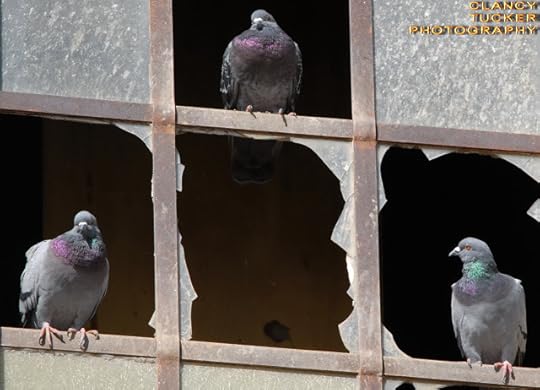
Published on July 14, 2016 15:10
July 13, 2016
14 July 2016 - ORIGINS OF MEMORIAL DAY

ORIGINS OF MEMORIAL DAY
G'day folks,
Ever wondered about the origins of Memorial Day?
According to the U.S. Department of Veterans Affairs, approximately 25 cities and towns—including two named Columbus, one in Mississippi, one in Georgia—claim to have originated Memorial Day in the years immediately before Grand Army of the Republic leader John A. Logan designated May 30, 1868, as a day “for the purpose of strewing with flowers, or otherwise decorating the graves of comrades who died in defense of their country during the late rebellion.”

The idea for Memorial Day (known as Decoration Day in the 1800s) did not arise with General Logan; he had been inspired by local commemorations of Civil War dead already being held in pockets throughout the North and the South, in some cases before the war had even concluded. Logan, in fact, had delivered the keynote address at an April 29, 1866, Decoration Day commemoration in Carbondale, Illinois, in which Union Army veterans paraded in tattered uniforms and spread flowers on cemetery graves.

Logan’s wife wrote in her 1913 memoir that she had suggested the holiday after becoming so moved by “the little flags and the withered flowers that had been laid” on Confederate graves in Petersburg, Virginia. Boalsburg, Pennsylvania, claims the holiday originated there even earlier when in 1864 a teenager mourning her Union Army father and a mother honoring her son who fell at Gettysburg laid flowers on their graves and began an annual town tradition.
The federal government weighed in on the debate 50 years ago when President Lyndon B. Johnson signed a May 26, 1966, proclamation that “officially recognized that the patriotic tradition of observing Memorial Day began one hundred years ago in Waterloo, New York.”

The small Finger Lakes village first staged an annual community-wide commemoration of its war dead on May 5, 1866, when businesses shuttered and residents draped buildings in black crepe and adorned soldiers’ graves with flowers and flags. Although Congress designated Waterloo, now home to the National Memorial Day Museum, as the holiday’s birthplace, the other contenders haven’t been dissuaded. The argument over who gave birth to Memorial Day remains a holiday tradition.
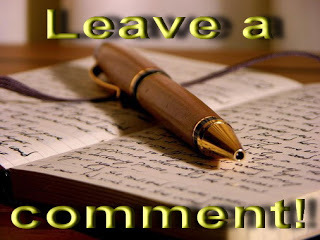
Clancy's comment: Notwithstanding the origins, may they rest in peace.

I'm ...


Published on July 13, 2016 15:30
July 12, 2016
13 July 2016 - CONNIE FRANCIS

CONNIE FRANCIS
G'day folks,
Welcome to the life of a superstar. Connie Francis is an American pop singer and the top-charting female vocalist of the late 1950s and early 1960s. Although her chart success waned in the second half of the 1960s, Francis remained a top concert draw.
Synopsis
Born on December 12, 1938, in Newark, New Jersey, Connie Francis won television's Startime Talent Scouts at age 12 and signed with MGM Records. She performed "Who's Sorry Now" on American Bandstand, and it became an immediate hit. In 1974, Francis was the victim of a brutal rape in her hotel room. Her lawsuit led to improved security measures throughout the hotel industry. For years after she was assaulted, Francis didn't perform. She returned to the stage in the early 1990s and released an autobiography Who's Sorry Now, in 1984.
Singer and actress Connie Francis was born Concetta Franconero, on December 12, 1938, in Newark, New Jersey. The daughter of George and Ida Franconero, Connie won first prize on Arthur Godfrey's Startime Talent Scouts television show at age 12, and performed on the show for four years. Godfrey convinced her to change her real last name to Francis after he had difficulty pronouncing it.
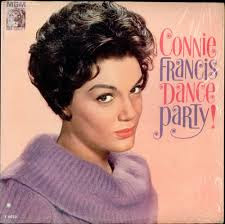
Francis signed with MGM Records in 1955 after she was rejected by nearly every major recording label. MGM released her first recording, "Freddy" because the president of MGM had a son named by the same name. During the next two years, she recorded a number of mediocre songs.
Francis was all set to quit music and study pre-med at NYU on scholarship when her father convinced her to record a decades-old tune, "Who's Sorry Now." Dick Clark introduced the song on his Bandstand TV show in 1958, and it became an immediate hit, selling a million copies less than six months after release. She started working with songwriters Neil Sedaka and Howie Greenfield, and recorded a string of hits, including "Stupid Cupid," "Lipstick on Your Collar," "Everybody's Somebody's Fool," "My Heart Has a Mind of Its Own" and "Don't Break the Heart That Loves You."
Francis is primarily known for her singing career, but she played the lead in a number of films created for teenagers in the early 1960s. She starred in four motion pictures, Where the Boys Are (1960), Follow The Boys (1963),Looking For Love (1964) and When The Boys Meet The Girls (1965).
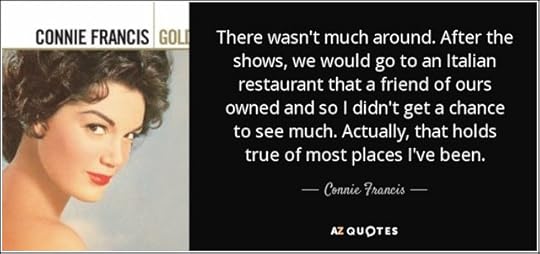
Sexual Assault
In the late 1960s, Francis went to Vietnam to sing for the troops. Through the years, she has performed charity work for organizations such as UNICEF, the USO and CARE. Following a November 1974 performance at the Westbury Music Fair in Westbury, New York, Francis was the victim of a brutal rape and robbery after an intruder broke into her hotel room and held her at knifepoint.
She won a lawsuit against the hotel for inadequate security, the result of which influenced the hotel and motel industry to install deadbolts, viewing ports and improved lighting. Francis was unable to sing for years after her attack, but slowly recovered until she was again able to tour in the early 1990s. Her autobiography, Who's Sorry Now, was released in 1984.
She was married to first husband Dick Kanellis for just three months (1964-65) and to Joseph Garzilli from 1973 to 1978. She and Garzilli adopted one son.
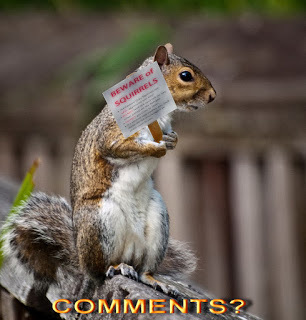
Clancy's comment: Another interesting career, and life.
I'm ...

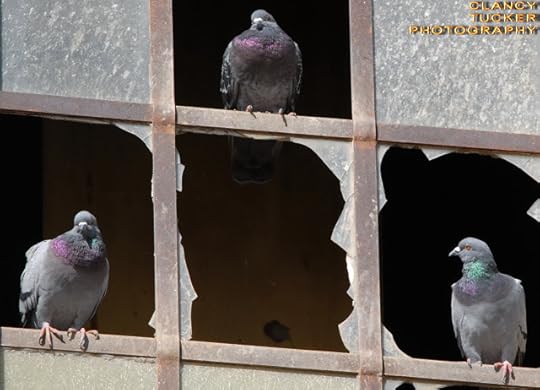
Published on July 12, 2016 15:07
July 11, 2016
12 July 2016 - GREAT QUOTES FROM MALCOLM FRASER
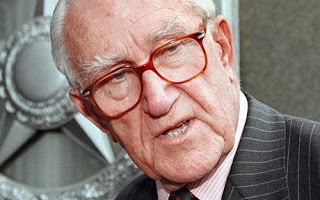
GREAT QUOTES FROM MALCOLM FRASER
G'day folks,
Today, I present some very direct quotes from a former Prime Minister of Australia. John Malcolm Fraser AC, CH, GCL was an Australian politician who was the 22nd Prime Minister of Australia and the Leader of the Liberal Party from 1975 to 1983.
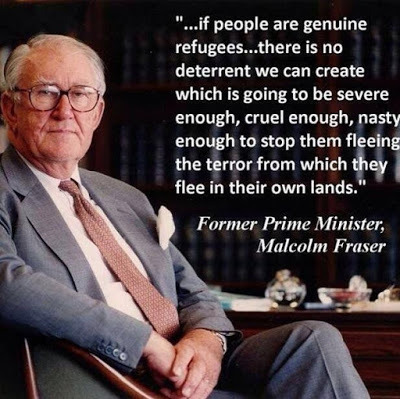
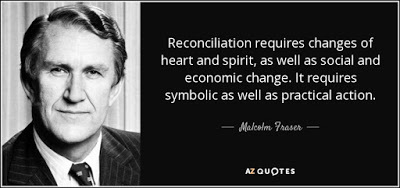



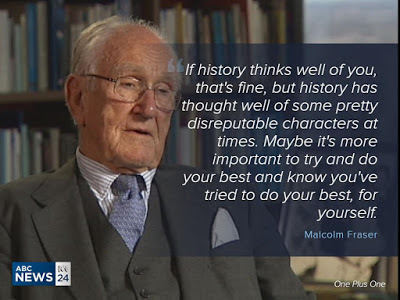
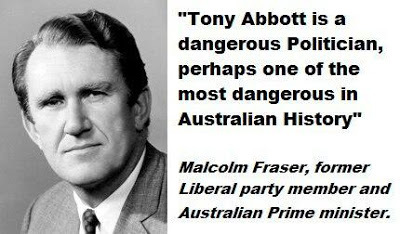
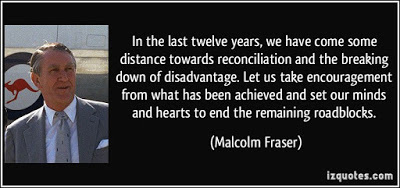
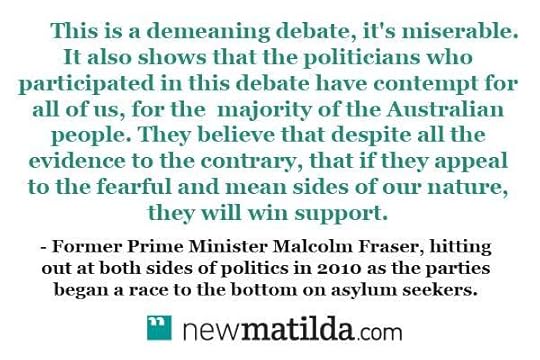
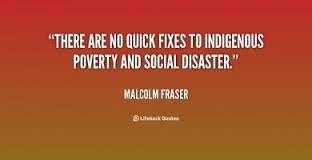
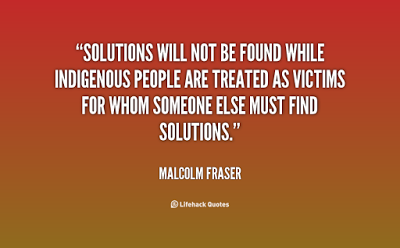
"Flexibility in pursuit of the nation's interests must never be allowed to degenerate into expediency."
"Life wasn't meant to be easy… "
"The great task of statesmanship is to apply past lessons to new situations, to draw correct analogies to understand and act upon present forces, to recognise the need for change.... "
"Secrecy is completely inadequate for democracy but totally appropriate for tyranny. If the minister will not inform the public, then we are within our rights to assume the worst."
"Reconciliation requires changes of heart and spirit, as well as social and economic change. It requires symbolic as well as practical action."
"Sometimes you can have competing election promises."
"People die because they find living too painful. "
"I believe there is a special obligation on Australians who have come or whose parents have come here in the post-war years, to work for and maintain that Australia, because that is the Australia they came to, that is the Australia that received them so warmly and that is the Australia to which they have already contributed so much in so many different ways."
MALCOLM FRASER, on asylum seekers
"Most asylum seekers do get permanent visas, so the earlier they receive the appropriate help, the faster they will become part of the community. They'll get jobs and start paying taxes too. They will see Australia as a nation with a sense of care and concern. That's so important for a cohesive society. It helps build a sense of belonging. And in terms of common decency, it's what should be happening... For God's sake, this is Australia, people should be treated with decency and humanity."
MALCOLM FRASER, on asylum seekers
"If a need for a sense of independence is important for Australia, there is a need to our politicians in Canberra to start to kill the view that we are a racist nation. At heart, I don't believe the great majority of Australians are racist, but the government has behaved as though we are. The government has really demeaned us, not just the government, but the government and the opposition, the political process. Both sides of the equation have really done Australia an enormous disservice."
MALCOLM FRASER, on asylum seekers
"Many who fled from Eastern Europe or the Soviet Union in the postwar years would have had to pay people for some part of their journey which ultimately led them to Australia. What has been forgotten in this debate is that desperate people will go to any lengths to get to a country that they believe to be safe and that they know will give them, and more particularly their children, a future."
MALCOLM FRASER, on asylum seekers
"At the moment people get on boats because they flee terror at home and believe the many years' long wait in UNHCR camps is not a valid option, especially if they have children in their care. After the Vietnam War, Australia took a larger humanitarian intake than at any other period in our history. The Australian community accepted that. They were told why we needed to do it, and why it was the only ethical decent policy that a wealthy advanced country should adopt."
MALCOLM FRASER, on asylum seekers
"A strong multicultural Australia that draws strength from its diversity, that debates real issues of importance to ourselves and to common humanity, has contributed so much in the past. It must do so again. The pettiness and meanness of the current debates about asylum seekers and indeed on other issues that are dealt with on a totally partisan basis must be put aside. There is a special obligation on our political leaders to lift themselves off the bottom and take the debate in a different direction - based on fact not hyperbole, based on humanitarian rather than punitive considerations; to rejoin the bipartisanship that will be needed to make meaningful contributions to such complex global challenges. We should also ask ourselves what we as Australians need to do so that politicians will learn to appeal to the best of our natures and cease playing politics with the lives of vulnerable people."
MALCOLM FRASER, on asylum seekers
"There are alternative policies available to Australian governments. They have not taken them because neither party is willing to lift substantially the humanitarian intake... Meanwhile our political leaders continue to demean Australia, to portray us as a narrow, wealthy, selfish community by debates they conduct between themselves. Thinking that this is only an Australian matter of no consequence to anyone else is false. It certainly affects the way other countries view Australia. Our policies set Australia apart from our own region and apart from the world at large. The Australian people deserve much better. Hopefully, one day our politicians will treat the Australian community with respect, instead of the contempt they show with their judgement of Australians."
MALCOLM FRASER, on asylum seekers
"The debate went on, playing politics with people's lives. To me, that is about as low as you can go."
MALCOLM FRASER, on asylum seekers
"The asylum-seeker debate in Australia is demeaning and miserable. The politicians who participate in it have contempt for the Australian people. They believe, despite all evidence to the contrary, that if they appeal to the fearful and mean sides of our nature, they will win support. They are showing that they believe we won't know enough about the world to know that for the most part what they are saying is plainly false. Australia should not seek to avoid its obligations."
MALCOLM FRASER, on asylum seekers
"Development requires modification and transformation of the environment... the planet's capacity to support its people us being irreversibly reduced by the destruction and degradation of the biosphere and the need to understand the problem and take corrective action is becoming urgent."
MALCOLM FRASER, on conservation March 1980

Clancy's comment: I never liked this guy whilst he was a politician. However, I soon changed my views when he left politics. He became one of the most outspoken former Prime Ministers of our time on major social justice issues.
I'm ...


Published on July 11, 2016 14:38
July 9, 2016
10 July 2016 - DUKE ELLINGTON
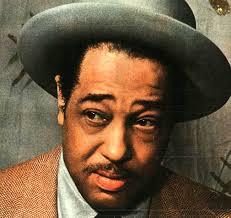
DUKE ELLINGTON
G'day folks,
Edward Kennedy "Duke" Ellington was an American composer, pianist, and bandleader of a jazz orchestra, which he led from 1923 until his death in a career spanning over fifty years. Here are a few things you may not have known about this man.
To say that Duke Ellington(April 29, 1899 - May 24, 1974) had a very productive and illustrious career would be a major understatement. As a composer, arranger, pianist and bandleader, he was a major force for nearly 50 years (1926-74), creating innovations in each area. He did all of that while constantly touring with his orchestra which, despite major changes in the music world, never broke up during his lifetime.
Ellington has been profiled in many books through the years and he was a national name by the early 1930s, but there are some aspects of his life and career that are not as well-known as his performances and recordings.
1) When Duke Ellington’s 70th birthday was celebrated by a historic reception and a jam session hosted by Richard Nixonin 1969, he was not the first Ellington to appear at the White House. His father, James Edward Ellington, in addition to his work as a butler, driver, caretaker and handyman for a prominent Washington D.C. doctor, worked as a part-time butler on several occasions during the Warren G. Hardingadministration in the early 1920s. If he had still been alive in 1969, James Ellington could have taken his son on a knowledgeable tour of the president’s residence.

2) While Edward Kennedy Ellington was given the nickname of Duke early in life due to his suave nature and classy manners, he was also called “Dumpy” by some of his sidemen due to his eating habits. Ellington always did his best to look good but he had a potentially huge appetite that led trombonist Tricky Sam Nanton to once say, “He’s a genius, all right, but Jesus how he eats!”
Ellington found that when he went on a diet consisting of nothing but steak, hot water, grapefruit juice and coffee, he could lose weight very quickly. During periods when he was eating excessively (he always loved good food), Ellington knew just the right clothes to wear that could keep him looking slim no matter what his weight.
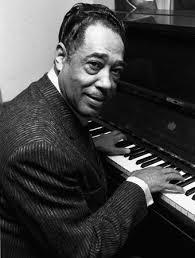
3) Jazz’s evolution went so quick during 1920-70 that if a band stood still musically for more than five years, it would fall behind the times and sound dated. Most ensembles of the 1920s were largely obsolete by the swing era of the 1930s and nearly all of the swing bands fell out of favor by the late 1940s when bebop had become the mainstream. However, Duke Ellington bucked all of the trends and, whether it was 1926, 1943 or 1956 or 1973, his orchestra ranked among the top five in the modern jazz scene of the era.
No other ensemble sounded so fresh, relevant and groundbreaking for such a long period of time. Ellington did this by never fitting into a restrictive category or chasing musical fads. He simply created the music that he believed in, regularly rearranging his most popular numbers so “Mood Indigo,” “Take The ‘A’ Train” and “It Don’t Mean A Thing If It Ain’t Got That Swing” still sounded modern decades after they were composed.
4) In the 1920s, most jazz pianists were stride players who kept time by striding between bass notes and chords with their left hand while their right played melodic variations. Duke Ellington, who was inspired by Willie “the Lion” Smith and James P. Johnson, became a very capable stride pianist. But unlike all of his contemporaries (other than Mary Lou Williams), Ellington continually modernized his playing during the decades that followed, becoming an influence on Thelonious Monkin the 1940s. By the early 1970s, his percussive style, which made creative use of space and included plenty of dissonant chords, could pass for the playing of a 30-year old rather than one who was in his seventies.
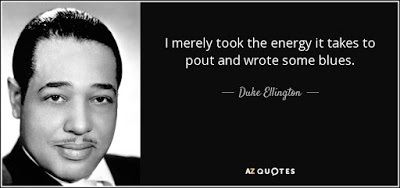
5) Up until the birth of the Lp in the late 1940s, nearly all jazz recordings were released on 78s which only held around three minutes of music per side. Occasionally a special 12-inch 78 was released that could contain up to five minutes although most bands used the extra time to play medleys of songs. Duke Ellington was among the very first to compose and record non-classical music that took up several sides of a 78. While his first extended recording was a two-sided version of “Tiger Rag” in 1929 that was essentially a jam session, 1931’s “Creole Rhapsody” (recorded in two very different versions) and 1935’s four-part “Reminiscing In Tempo” were innovative in their development of themes over a longer period of time than three minutes. In the 1940s Ellington’s suites were often documented on 78s, although his “Black, Brown and Beige,” since it ran for close to an hour, was greatly condensed when he documented it as a four-part 12-minute suite. Even with Duke’s popularity, it was doubtful that many of his fans would have wanted to buy ten 78s just to hear the suite.
6) Duke Ellington was among the very first African-American musicians to celebrate his race and proudly use the word “black” in many of his song titles rather than stick to stereotypes or play it safe. Among the pieces that he wrote and recorded were “Creole Love Call (1927),”Black And Tan Fantasy,” “Black Beauty” (1928), “When A Black Man’s Blue” (1930), “Black Butterfly” (1936) and his monumental “Black, Brown and Beige” suite (1943). In addition, in all of his film appearances, starting with the 1929 short Black and Tan, Ellington and his musicians looked and acted like distinguished artists rather than clowns or weak comedy relief.

7) While Duke Ellington composed thousands of songs in his career covering a wide range of music and he made hundreds of albums, he never really recorded his earliest composition, “Soda Fountain Rag” which he wrote in 1914. Ellington only performed it on very rare occasions (there are obscure concert versions from 1937, 1957 and 1964). In his countless number of recording sessions, Ellington never got around to officially documenting his first song.

Clancy's comment: Clever man. Great musician.
I'm ....


Published on July 09, 2016 15:40
July 8, 2016
9 July 2016 - KIDS FROM RUSSIA
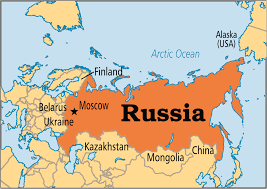
KIDS FROM RUSSIA
G'day folks,
This is another post featuring kids around the world. Russia, the world’s largest nation, borders European and Asian countries as well as the Pacific and Arctic oceans. Its landscape ranges from tundra and forests to subtropical beaches. It’s famous for novelists Tolstoy and Dostoevsky, plus the Bolshoi and Mariinsky ballet companies. St. Petersburg, founded by legendary Russian leader Peter the Great, features the baroque Winter Palace, now housing part of the Hermitage Museum’s art collection.
Continent: Eastern Europe and Central Asia
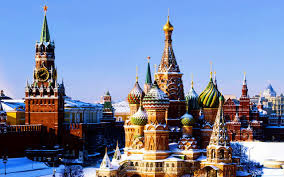
Climate: Varies; includes Arctic tundra in the north, sub-Arctic forestland in eastern Asia, desert in central Asia and a temperate and humid region in Europe School: Russian children have nine years of elementary education. The school day usually runs from 8:30 a.m. to 2:30 p.m.; lunch is eaten at school.School uniforms were abolished in the 1990s. For attire, the emphasis is on warmth-children may even wear fur coats.Play: Chess is a national obsession. Other pastimes include the card game Durak (Russian Fool) and the computer game Tetris, which was invented in Russia.Soccer is the top sport in Russia. Ice hockey and ice skating are also popular in this chilly country. Family: About three-quarters of Russian families live in small city apartments. Some families also have a country cottage, which is called a dacha.In Russia, grandmothers—babushkas—are famous for the strong role they play in families, public life and fairy tales.Signature foods: Borscht, a beet soup served hot or cold, topped with sour cream and sprinkled with dill or chopped green scallionsPelmeni, small, moist dumplings filled with chopped meat. They are often served with butter, sour cream and vinegar.Interesting animals: The European mink, a small, solitary animal famed for its beautiful coat; its feet are semi-webbedThe polar bear, whose three- to four-inch layer of fat keeps it warm in northern Russia; its oily fur is transparent, but looks white when it reflects light

Unique holiday: On Defenders of the Motherland Day, February 23, families honor men and boys with cards, gifts and other special treats. (Women and girls are not neglected—International Women's Day, March 8, is a big holiday in Russia.) Did you know? Russia is the largest country in the world. It covers 6.6 million square miles (17 million sq km), eleven time zones and two continents—Europe and Asia.

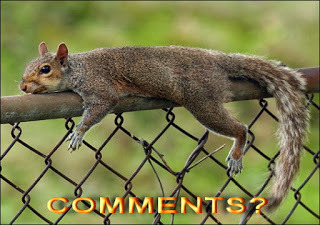
Clancy's comment: An extraordinary place. Sadly, in recent years, any Russians I have seen or met have been bereft of smiles.
I'm ...

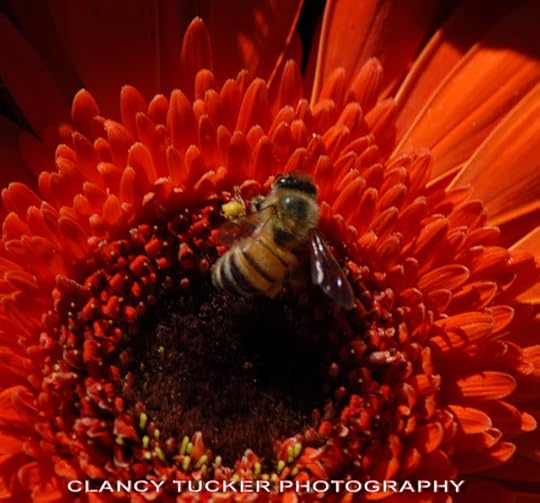
Published on July 08, 2016 22:16
July 7, 2016
8 July 2016 - ALMA JANE SIRBU - Guest Author
 ALMA JANE SIRBU
ALMA JANE SIRBU- Guest Author -
G'day folks,
Today, I interview a very interesting author from Romania. I always have lots of time for those who can speak and write in more than one language. Alma Jane is one of them.
Welcome, Alma Jane ...
1. TELL US A LITTLE ABOUT YOURSELF AND YOUR WRITING JOURNEY.
I’M BORN IN A BIG CITY OF ROMANIA, NAMED CONSTANTA, NEAR THE BLACK SEA. MY CHILHOOD WAS A VERY HAPPY PERIOD IN MY LIFE AND I BEGUN TO WRITE SHORT STORIE AT 17 EN YEARS. I DON’T PUBLISHED BECAUSE WE LIVED IN A COMUNIST CONTRY BEFORE 1989.
I FINISHED LITERATURE UNIVERSITY IN BUCHAREST, IN 1984 AND AFTER I COME BACK IN CONSTANTA. I WAS MARIED WITH A SAILOR MAN, WHO DIED IN 1991 IN MEDITEREANA SEA. I HAVE A BEATIFULL DOUGTHER 34 YEAR OLD, ACTRICE. AFTER MY MARIEGE, I WORKED AND I DON’T WRITE ENYTHING LONG TIME…UNTIL 2006.
2. WHEN AND HOW DID YOU BECOME A WRITER?
I BECAME I WRITER WHEN I FINISHED MY FIRST NOVEL IN 2011, NAMED “KATRINA, PACAT DIN IUBIRE” AND TRANSLATED IN 2012 IN ENGLISH “KATRINA, SIN OF LOVE”.
3. WHAT TYPE OF PREPARATION DO YOU DO FOR A MANUSCRIPT? DO YOU PLAN EVERYTHING FIRST OR JUST SHOOT FROM THE HIP?
MY IMAGINATION IS INFINITE AND MY LIFE WAS FULL OF STRANGE SITUATIONS. WHEN I’M PREPARING MY NEXT NOVEL OR SHORT STORY, I’M THINKING TO ALL MY LIFE FROM NOW AND LOOKING FOR THE MOST BEATIFULL OR STRANGE SITUATIONS. NEXT, I BEGIN TO WRITE WITH ANY PREPARATION. I LIKE TO SAY THAT GOD WRITE IN MY PLACE.
4. WHAT DO YOU ENJOY MOST ABOUT BEING A WRITER?
MY FIRST PLEASURE IS TO WRITE…THAT JOURNEY IN FRONT OF MY WHITE PAGES, WHO BECAME A NEW STORY, DAY TO DAY, MAKES ME A LITLE GOD. I’M HAPPY TO WRITE ALL THAT TIME.

5. WHAT IS THE HARDEST THING ABOUT BEING A WRITER?
THE HARDEST?...MANY THINGS, BECAUSE IN MY COUNTRY I’SNT EASY TO BECOME A WRITER. EDITURES DON’T WANT TO PUBLISH ROMANIAN AUTHORS, THEY TRANSLATE FROM OTHER COUNTRIES AND IF THEY WANT…THEY PUBLISH SOME WRITERS FROM OUR COUNTRY.
6. WHAT WERE YOU IN A PAST LIFE, BEFORE YOU BECAME A WRITER?
I WORKED IN A GRAND INSURANCE COMPANY, FROM MY COUNTRY.
7. WHAT IS YOUR GREATEST WRITING ACHIEVEMENT?
I DON’T KNOW IN THIS TIME…WILL SEE…
8. WHAT ARE YOU WORKING ON AT THE MOMENT?
NOW, I’M WORKING AT MY 3 RD NOVEL INSPIRED FROM MY LIFE, AN INTROSPECTION IN MY MOST SECRET MEMOIRES AND FILINGS.
9. WHAT INSPIRES YOU?
THE LIFE IN GENERAL, MY LIFE IN SPECIAL, BUT MY WRITING IS NOT ABOUT ME…I’M WRITING BEAUTIFULL STORIES ABOUT OTHERS WITH MY FILINGS.
10. WHAT GENRE DO YOU WRITE?
I’M WRITING FICTION, WOMENS FICTION.
11. DO YOU HAVE ANY TIPS FOR NEW WRITERS?
TIPS?...I CONSIDER ANY “TIPS” LIKE AN INTRUSION IN OTHER MINDS.IF I CAN GIVE ONE…WRITE WITH YOUR SOUL, NOT WITH YOUR MIND.
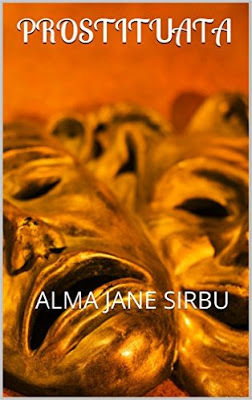
12. DO YOU SUFFER FROM WRITER’S BLOCK?
NO, I’M SUFFER DO NOT HAVE TIME TO WRITE ALL I HAVE IN MY MIND.
13. DO YOU HAVE A PREFERRED WRITING SCHEDULE?
NO, IN GENERAL, BUT I’M WRITING IN THE NIGHTS…NOT EVERY NIGHTS.
14. DO YOU HAVE A FAVOURITE WRITING PLACE?
I WISH I DO, BUT NO. I’M WRITING IN ALL OF THE PLACE FROM MY HOME, OR, IF I AM IN OTHER PLACE, I’M WRITING THERE.
15. WHAT IS YOUR GREATEST JOY IN WRITING?
THE WRITING AND WHEN READERS COME TO SAY ME “THANKS FOR THE JOURNEY, I READED YOUR NOVEL IN 8 HOURS”.
16. WHO IS YOUR FAVOURITE AUTHOR AND WHY?
I READ IN ALL MY LIFE, MORE THAN 10.000 BOOKS FROM ALL OF THE WORLD. THET QUESTION IS TOO HARD FOR ME...I DON’T HAVE AN ANSWER.
17. WHAT’S THE GREATEST COMPLIMENT YOU EVER RECEIVED FROM A READER?
OH, MANY…BUT THE GREATEST IS: THANS FOR YOUR WRITING, I READED YOUR NOVEL THREE TIMES OR MORE…
18. WHAT WAS THE WORST COMMENT FROM A READER?
MY READERS DON’T MAKE ME SHINE…I DON’T HAVE COMMENTS LIKE THAT.
19. WRITERS ARE SOMETIMES INFLUENCED BY THINGS THAT HAPPEN IN THEIR OWN LIVES. ARE YOU?
YES, MOST OF…
20. OTHER THAN WRITING, WHAT ELSE DO YOU LOVE?
LIFE, I’M LOVING LIFE! I LOVE TO TRAVEL, I LOVE TO READ, I LOVE MY FAMILY.
21. DID YOU HAVE YOUR BOOK / BOOKS PROFESSIONALLY EDITED BEFORE PUBLICATION?
YES, ALL OF THEM.
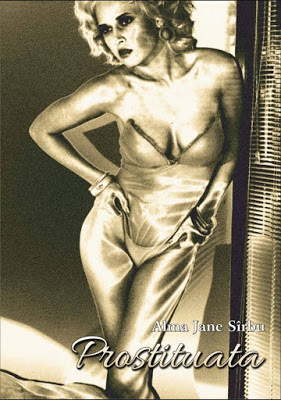
22. DESCRIBE YOUR PERFECT DAY.
NOW I’M RELOCATE AT CONTRY-SIDE. I’M LIVING IN A HOUSE WITH A NICE GARDEN. MY PERFECT DAY IS TO WORK IN MY GARDEN, READ AND WRITE. I LIKE THE SILENS OF THE NATURE.
23. IF YOU WERE STUCK ON A DESERT ISLAND WITH ONE PERSON, WHO WOULD IT BE? WHY?
HARD TO SAY, MAYBE ONE OF MY FAVORITE AUTHORS FROM MY CHILDHOOD, JULES VERNE...HE CAN GIVE US A SOLUTION TO ESCAPE FROM THERE…HAHAHA!!!
24. WHAT WOULD YOU SAY IF YOU HAD THE CHANCE TO SPEAK TO WORLD LEADERS?
NOT MUCH…LOVE YOU COUNTRIES, LOVE YOUR PEOPLE BECAUSE THEY LOVES YOU!!! WITHOUT LOVE, NOTHING IS WORKING IN THIS WORLD!!!
25. WHAT ARE YOUR PLANS FOR THE FUTURE?
MY PLANS... I DON’T MAKE PLANS, WHY, I DON’T KNOW, BUT I HOPE TO FINISH MY NEW NOVEL “A LIFE”.
26. WHAT ARE YOUR VIEWS ON BOOK TRAILERS? DO THEY SELL BOOKS?
I DON’T THINK SO, BECAUSE THE TRAILERS ARE FOR MOVIES, NOT FOR BOOKS.
27. DO YOU SEE YOURSELF IN ANY OF YOUR CHARACTERS?
YES, I AM I ALL OF MY CHARACTERS, MULTIPLIED!
28. DOES THE PUBLISHING INDUSTRY FRUSTRATE YOU?
VERY MUCH, BUT I THINK IF YOU ARE A GOOD WRITER, THE SELF-PUBLISHING WAY IS THE MOST HOPEFUL.
29. DID YOU EVER THINK OF QUITTING?
NO, BECAUSE I WRITE FROM MY HART, NOT FOR THE MONEY.
30. WHAT WAS YOUR FAVOURITE MANUSCRIPT TO WRITE? WHY?
ALL OF MY MANUSCRIPTS ARE MY FAVORITE…NOW, IS WHAT I’M WRITING…

31. WHAT SHOULD READERS WALK AWAY FROM YOUR BOOKS KNOWING? HOW SHOULD THEY FEEL?
BECAUSE I’M WRITING ABOUT LIFE, ABOUT LOVE, HATE, ADVENTUROUS THINGS, HISTORICAL THINGS, WAR, COMUNIST SOCIETY, REVOLUTION…THEY WILL WALK WITH ME INTO MY WORLD, NEVER DISCOVER BY OTHER WRITER.
32. WOULD YOU LIKE TO HAVE YOUR BOOKS MADE INTO MOVIES? EVER WRITTEN A SCREENPLAY?
YES, ALL OF THEM. WILL BE ALL OF THE BEST MOVIES ABOUT LIFE, WRITEN IN THIS PERIODE.
33. HOW MUCH THOUGHT GOES INTO DESIGNING A BOOK COVER?
MY COVERS ARE SIMPLY BUT SHINY…MY DAUGTHER IS ON THE FRONT OF THEM.
34. WHAT’S YOUR ULTIMATE DREAM?
I HOPE TO BE HEALTHY TO WRITE AND MAKE SCRIPTS FROM MY NOVELS.
35. WRITING IS ONE THING. WHAT ABOUT MARKETING YOU, YOUR BOOKS AND YOUR BRAND? ANY THOUGHTS?
UNTIL NOW, I DON’T HAVE MONEY AND TIME TO SPEND ON MARKETING. MAYBE, MY LINKEDIN PROFILE, WAS THE BEST MARKETING FOR ME, INCLUDING YOU CLANCY…
36. ARE YOUR BOOKS SELF-PUBLISHED?
YES, ALL OF THEM.
37. DESCRIBE YOURSELF IN FIVE WORDS.
OH, HARD TO SAY…KIND, IMAGINATIVE, HONEST, AMBITIOUS AND FULL OF LOVE.
38. WHAT PISSES YOU OFF MOST?
THE EVIL FROM ALL THE WORLD.
39. WHAT IS THE TITLE OF THE LAST BOOK YOU READ? GOOD ONE?
GOODBYE JANETT BY HAROLD ROBBINS…VERY GOOD BOOK!!!

40. WHAT WOULD BE THE VERY LAST SENTENCE YOU’D WRITE?
THIS WORD “SENTENCE” INCLUDE MANY THINGS…I WANT TO KNOW YOUR SENTENCE ABOUT MY WRITING, NOT MINE!
41. WHAT WOULD MAKE YOU HAPPIER THAN YOU ARE NOW? CARE TO SHARE?
I WANT TO HAVE A REAL FAMILY, BECAUSE MY DAUGHTER LIVES IN ITALY AND MY MOTHER IS VERY OLD AND ILL. SHE HAVE ALZHEIMER FROM OLMOST 15 YEARS AGO…MY FATHER PAST AWAY LAST YEAR AND MY HUSBAND IS DISAPPEARED MANY YEARS AGO, IN A SHIPWRECK IN MEDITERANEAN SEA.
42. ANYTHING YOU’D LIKE TO ADD?
I WANT YOU KNOW THAT I LOVE THIS WORLD, I’M WRITING FOR THIS WORLD AND I WANT TO BE READ FROM ALL OVER THE WORLD.
I WANT YOU KNOW ABOUT MY WRITING THAT:
1)IN 2013 I WIN THE 3 rd PRIZE ON THE INTERNATIONAL FESTIVAL OF LITERATURE AND VIZUAL ART “LA FINESTRA ETEREA” FROM MILAN, ITALY WITH MY FIRST NOVEL “ KATRINA, PACAT DIN IUBIRE”.
2)IN 2015 I WIN THE FIRST PRIZE WITH MY SECOND NOVEL “PROSTITUATA” AT THE SAME FESTIVAL, IN ITALY.
3)MY BOOKS ARE SELLING ALL OVER THE WORLD ON AMAZON, B&N, NOOK, SCRIBD.COM, AND OTHER SITE WHO IS INTERESTED ABOUT MY WORK, IN ROMANIAN AND ENGLISH LANGUAGE TOO.
P.S. SORRY FOR MY ENGLISH! IF I DON’T WRITE VERY GOOD, YOU CAN RE-WRITE, AND I HOPE YOU UNDERSTAND ALL MY ANSWER. THANKS VERY MUCH FOR BEING YOUR GUEST!!!ALL THE BEST FROM ME.

AMAZON BOOKS

Clancy's comment: Thank you, Alma Jane. It was a pleasure. Great interview.
I'm ...
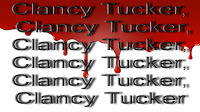

Published on July 07, 2016 13:24
July 6, 2016
7 July 2016 - WEIRD AND FUNNY PICTURES
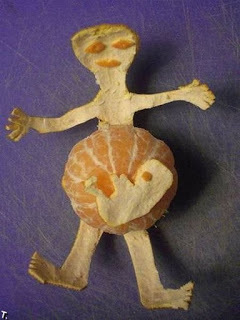
WEIRD AND FUNNYPICTURES
G'day folks,
Time for a smile. Check out these funny and weird pictures.
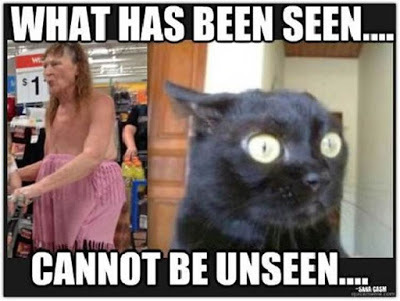
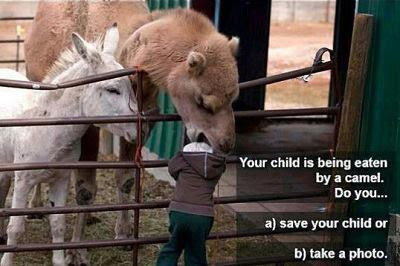
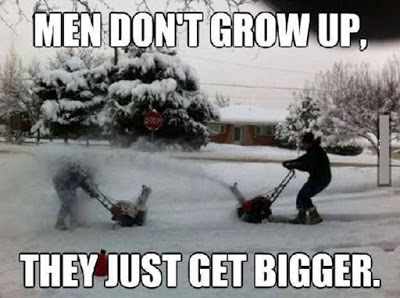
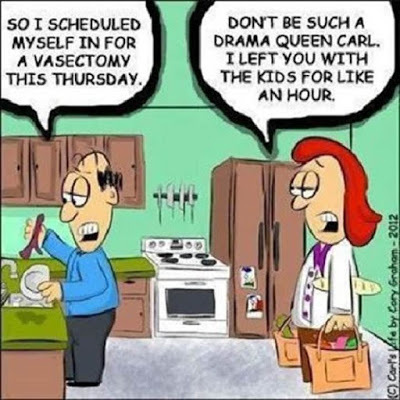
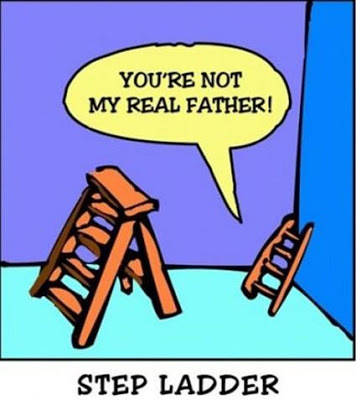


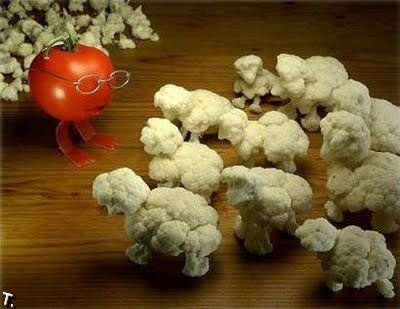



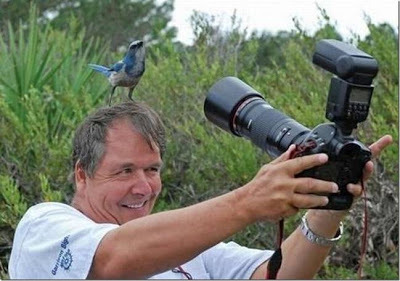

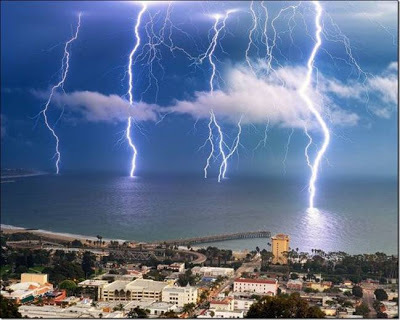
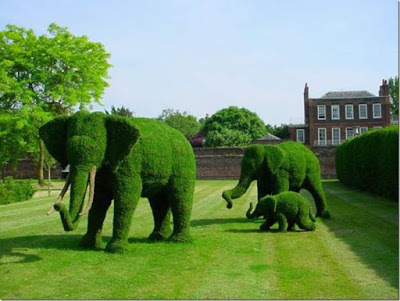


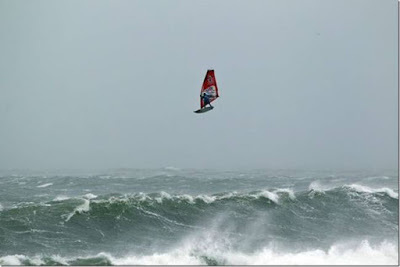

Clancy's comment: Okay, you've had your fun. Get back to work!
I'm ...
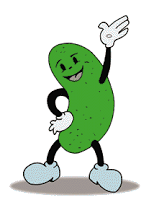
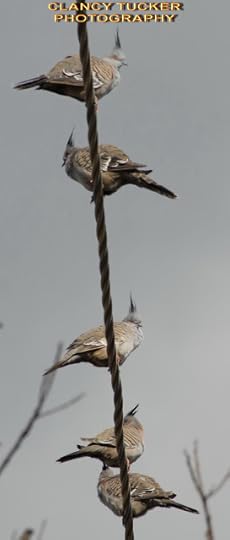
Published on July 06, 2016 14:34



